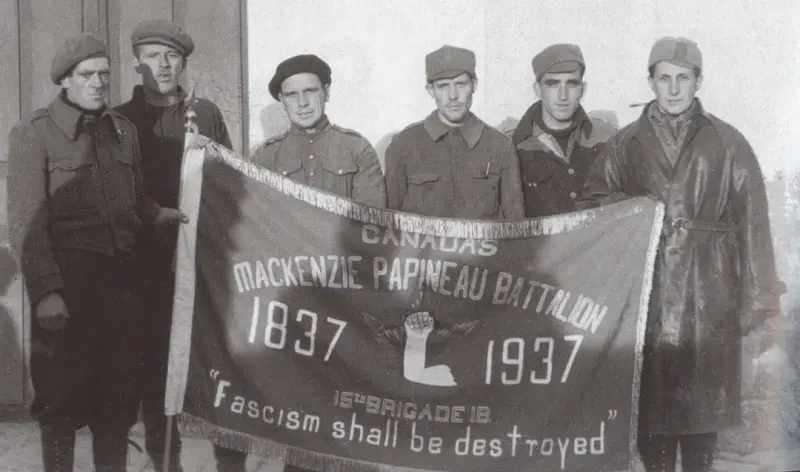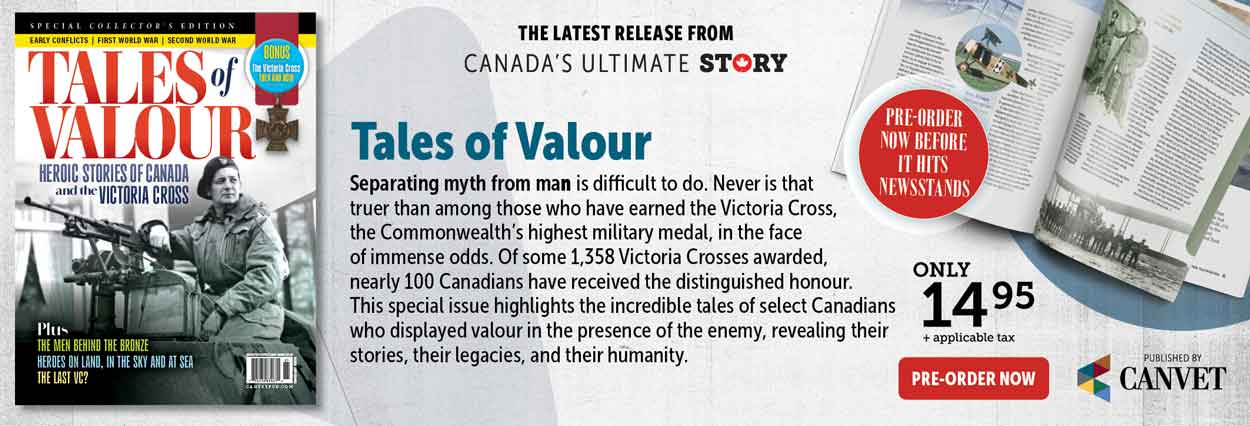
Canadian soldiers of the Mackenzie-Papineau Battalion. [u/verostein/Reddit]
Perhaps that was true for most in the country, as it was for most western democracies that had, since July watched with increasing unease as Spain tore itself apart. Nevertheless, for a proportion of politically motivated—and often disillusioned—Canadians, it would take more than just words.
The Spanish Civil War, which had pitted Nationalists against the governing Republicans, represented a battle of ideals that transcended borders. The fascist and nationalist cause of General Francisco Franco had already garnered the support of Italy, Germany and Portugal. Meanwhile, the likes of Canada, France, Britain and the United States had pursued a broad policy of non-intervention.
Not everyone, however, intended to toe the line.
Over the coming months, and in clear defiance of their respective governments, scores of primarily left-leaning idealists flocked to Spain to fight alongside the Republicans. There, they helped form the so-called International Brigades.
More, it seemed, needed to be done to prevent further recruitment. In response, the Canadian government passed the Foreign Enlistment Act on April 10, 1937. Replacing an 1870 British law that contained ambiguities and potential loopholes, the new rules barred citizens from joining the armed forces of any nation “at war with any friendly state.”
It’s estimated that some 1,600 Canadians served in the 1936-1939 Spanish Civil War.
Even with the fresh legislation, there were still challenges keeping Canadians away from the fighting. Moreover, King’s government applied the act to the situation in Spain by an order-in-council, adding weight to the government’s neutral stance.
By that stage, and even thereafter, the Communist Party of Canada (CPC) had continued to be proactive in its recruitment efforts, albeit largely underground. Despite the RCMP employing informers to monitor recruiters—more so than the recruits themselves—authorities received minimal government guidance. Thus, they were effectively powerless to prosecute and arrest suspects.
Around 76 per cent of Canadian volunteers were members of either the CPC or the Young Communist League. These individuals needed only to approach their local committees to begin the recruitment process. Others without such connections had to apply greater pragmatism to find the right circles.
Regardless of how they signed up, galvanized Canadians showcased their willingness to flout the Foreign Enlistment Act by any means at their disposal. Eventually, recruits were en route to Europe, often landing in Le Havre, France, and subsequently crossing into Spain over the Pyrenees.
It’s estimated that some 1,600 Canadians served in the 1936-1939 Spanish Civil War, a majority of whom fought in some of the conflict’s fiercest engagements as part of the Mackenzie-Papineau Battalion. The Canadian contingent also included three women in different roles. Additionally, at least two Canadians sided with Franco, who later overthrew the Republicans before ruling Spain as dictator until his death in 1975.
Jules Paivio was the last living Canadian volunteer when he died at 97 years old in 2013. Though memorials have since been erected in honour of those who served, the complicated legacy of the Foreign Enlistment Act—and questions surrounding its effectiveness—have largely been buried with time.
Advertisement





















